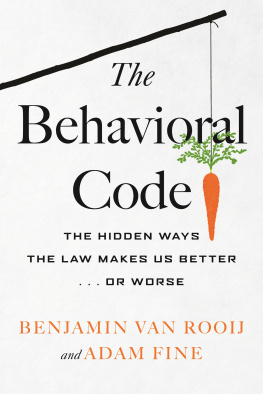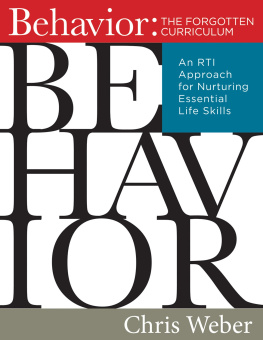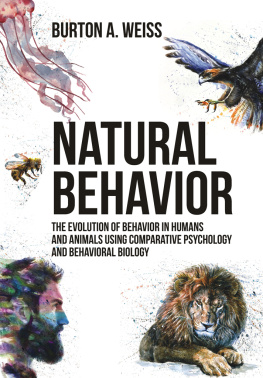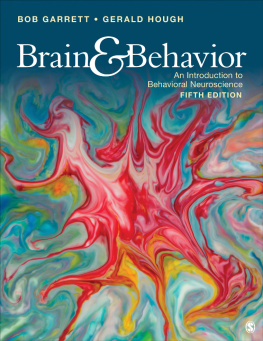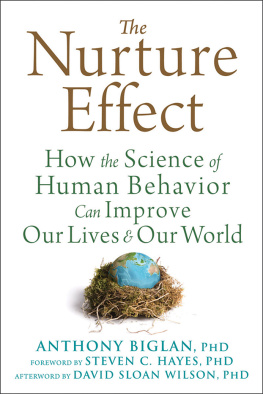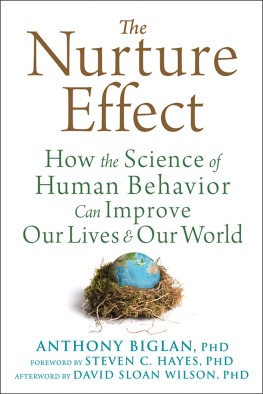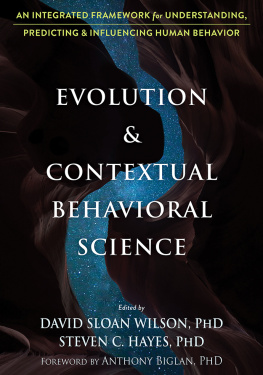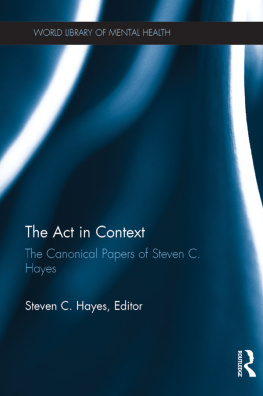Table of Contents
Pagebreaks of the print version
Guide
Praise for The Behavioral Code
The law is an embarrassment for its failure to account for the facts about how or whether its rules actually work. This brilliant and foundational text, beautifully written and compelling, will launch a long-needed movement.... The current system is deeply unjust; this book points a clear way to making it much more just.
LAWRENCE LESSIG , Roy L. Furman Professor of Law and Leadership, Harvard Law School
In an engaging, scientifically grounded fashion, van Rooij and Fine expertly link the findings of behavioral science with evidence of how people respond to laws, regulations, and legal sanctions. An excellent and urgent reminder of how behavioral science is essential to our understanding of law.
ROBERT B. CIALDINI , author of Influence and Pre-Suasion
if youve ever dreamed of a legal system thats informed by behavioral science, this book could very well move us one step closer to making your dream a reality.
ADAM GRANT , author of Think Again and host of the TED podcast WorkLife
Accessible, timely, and compelling, The Behavioral Code explores the vast literature concerning punishment and provides a blueprint for reforming the criminal justice systemone where we can better understand just how effective our laws may or may not be.
ERWIN CHEMERINSKY , dean, UC Berkeley School of Law, and author of The Case Against the Supreme Court
Sometimes we follow the law, and sometimes we dontbut why do we pick and choose which rules are worth following? Van Rooij and Fine tackle this complex question by using our contemporary understanding of behavioral ethics to predict human responses to laws. Through fresh and fascinating analysis, The Behavioral Code has the potential to lead policymakers to make wiser decisions to pass laws that make the most sense given how humans actually behave.
MAX H. BAZERMAN , author of Better, Not Perfect and Blind Spots
Laws come in so many flavors: universal versus parochial ones; those obeyed versus those blithely ignored or heroically resisted; bureaucratic nonsense versus laws that save lives or proclaim sacred values. The Behavioral Code explores the factors that shape when people do or dont obey laws, with writing that is clear, science-based, and even-handed. A fascinating book with crucial implicationsfrom the successes and dysfunctions of entire societies to our own everyday behavior.
ROBERT M. SAPOLSKY , author of Behave: The Biology of Humans at Our Best and Worst
With research informed but enlivened by real-world accounts, this work unlocks the secrets to using the law to advance the commonweal.... This is a book to be studied carefully and then shared with others as a must-readbut do so with the proviso that the volume be returned so as to occupy a prominent and permanent place in your library.
FRANCIS T. CULLEN , Distinguished Research Professor Emeritus, University of Cincinnati, and past president, American Society of Criminology
Irrespective of whether the issue is wearing a face mask, complying with a police request, or accepting the results of an election, the ability to motivate people to follow rules is central to the viability of our own, or any other, society. But why do people follow or break rules? Anyone interested in knowing will benefit from reading The Behavioral Code. an engagingly written, timely, and compelling read.
TOM TYLER , Macklin Fleming Professor of Law and professor of psychology, Yale University
This book draws on a broad swathe of behavioral research and is essential reading for anyone who assumes either that rules are necessarily the best way to alter behavior or that compliance follows automatically.
MALCOLM K. SPARROW , professor, Harvard Kennedy School
The Behavioral Code is a fantastically engaging look at how legal codesfrom how we drive to how we serve food to how we reduce harmguide every aspect of our lives. Van Rooij and Fine draw on fascinating examples of laws that worked (and ones that failed) to teach us new ways to impact behavior. Anyone who cares about making our society a safer place should read this book.
ELIZABETH F. LOFTUS , former president, Association for Psychological Science
This superb book is the best comprehensive treatment of the new field of law and behavior. Groundbreaking and highly accessible, this book will set the agenda for law reform for the next decade.
DAVID LEVI-FAUR , professor, Hebrew University of Jerusalem, and founding editor of Regulation and Governance
The Behavioral Code is readily accessible to both scholars and the general public and will change the way you think. This is interdisciplinary integration at its very best.
SALLY S. SIMPSON , past president, American Society of Criminology
Most books about the American criminal justice system show how deeply unjust and biased it is. The Behavioral Code reveals a startling truth: it actually fails to fight crime. Offering a witty and accessible tour de force of the science of crime, this must-read book shows us how to reduce our reliance on brutal punishment and build a more humane and effective justice system that can actually protect us.
L. SONG RICHARDSON , president, Colorado College
Van Rooij and Fines engaging book offers a blueprint of how we can begin designing laws to create the outcomes we want as a society. A compelling call to action that should be read by all policymakers and regulators.
EUGENE SOLTES , professor, Harvard Business School, and author of Why They Do It: Inside the Mind of the White-Collar Criminal
Anyone interested in understanding how to use law and regulation more effectively to solve social and economic problems will benefit from van Rooij and Fines engaging masterpiece.
CARY COGLIANESE , director of the Penn Program on Regulation, University of Pennsylvania
The Behavioral Code is a marvelous book full of striking stories and insightful science that help us see the law through a different lenswhat difference it makes in everyday life, and how it can and must do better.
CHRISTINE PARKER , professor, Melbourne Law School
The faith of modern societies in the ability of laws to shape behavior by words alone remains astonishingly strong, as our pandemic experience now attests. The Behavioral Code brilliantly decodes a centurys worth of human science to show both how terrifyingly misguided that faith is and what we actually know about how to change behavior.
JONATHAN SIMON , Lance Robbins Professor of Criminal Justice Law, UC Berkeley, School of Law
Using engaging stories, insightful resources, and practical guidance, this book picks up where the law leaves off for all those who are interested in understanding noncompliant and criminal behaviors.
HUI CHEN , former Compliance Counsel Expert, Us Department of Justice
By summarizing hundreds of studies, weaving in catchy examples, and delivering an insightful and informative guide on the effect of law on behavior, The Behavioral Code is an incredible feat that challenges what we think we know about the law.
YUVAL FELDMAN , author of The Law of Good People
Van Rooij and Fine provide a master class on the intersection between social science and the law, and their insights will reshape how we think of the law.
DAVID DEMATTEO , former president, American Psychology-Law Society
The Behavioral Code

